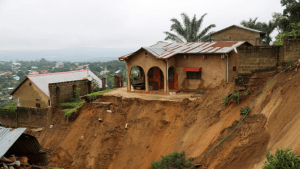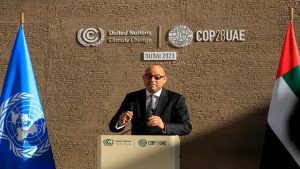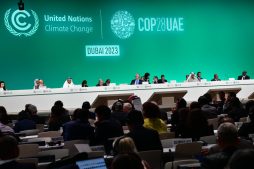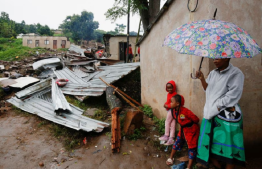The University of Johannesburg Vice-Chancellor Prof Tshilidzi Marwala has called on government leaders to deal with challenges presented by climate change.
In what he calls a permacrisis in the current era of Global change he added that Just Energy Transition is inevitable for everyone.
Marwala says this at the 5th National Global Change Conference hosted by the University of the Free State in Bloemfontein. The four-day conference will discuss amongst others, environmental degradation and sustainable development.
Video: The role of climate change in South Africa Prof Francois Engelbrecht
The impact of the extreme weather conditions is already felt across the country and the reaction toward climate change will define the next generation.
Excessive heat has threatened the water supply, while many other areas are now vulnerable to flooding, leaving many destitute. Drought, veld fires, and flooding are all threatening food security.
CEO of the National Research Foundation, Prof Fulufhelo Nelwamondo says, “You can look at some of the issues in the area climate change, issues of the floods in we just saw recently in and again it’s a question of how do we ensure that even a novice a layman who’s sort of sitting in a village can say I can see the benefit of science and how it affects me or how it can impact my life going forward. So as NRF, we are funding that kind of research to ensure that science can make sense and can improve the quality of lives.”
Scholars call for leaders to devise strategies to ensure that the economy is competitive, but also appeal to all to partake in innovative ideas. They agree that there’s a need to find solutions to the damage caused to the environment.
“There’s absolutely no two ways about it. It is called the Just Transition. We have to move renewal energy. And I can use the University of Johannesburg where I am the leader of the university where 20 % of our power comes from solar and we can move to 30 % with ease. If we all do that as an institution how much power can we be able to save for the grid,” explains Prof Tshilidzi Marwala.
Deputy Director General at the Department of Science and Innovation, Imraan Patel says, “We’ve been doing work around renewable energy. So the second part of our work which is about identifying innovations is this. Besides technology, there are also finding ways in which we can help communities and governments do things differently and those are called social innovations. so that’s what the department is responsible and we fund a lot of these things but the real what happens if the universities.”
Professor Marwala has challenged other institutions of higher learning to lead by example, by finding ways to respond to the current effects of climate change.






